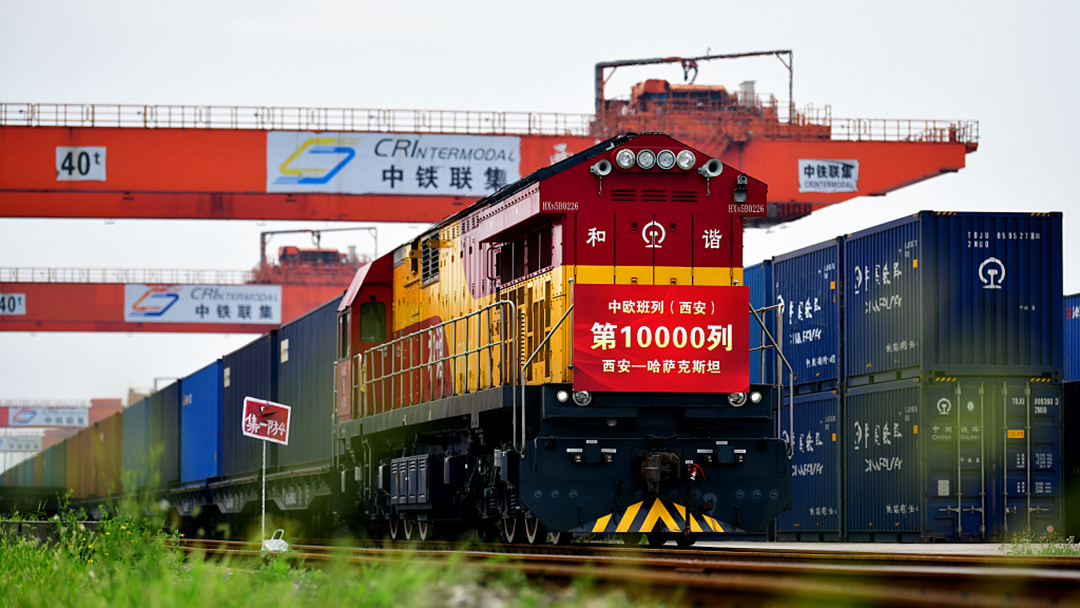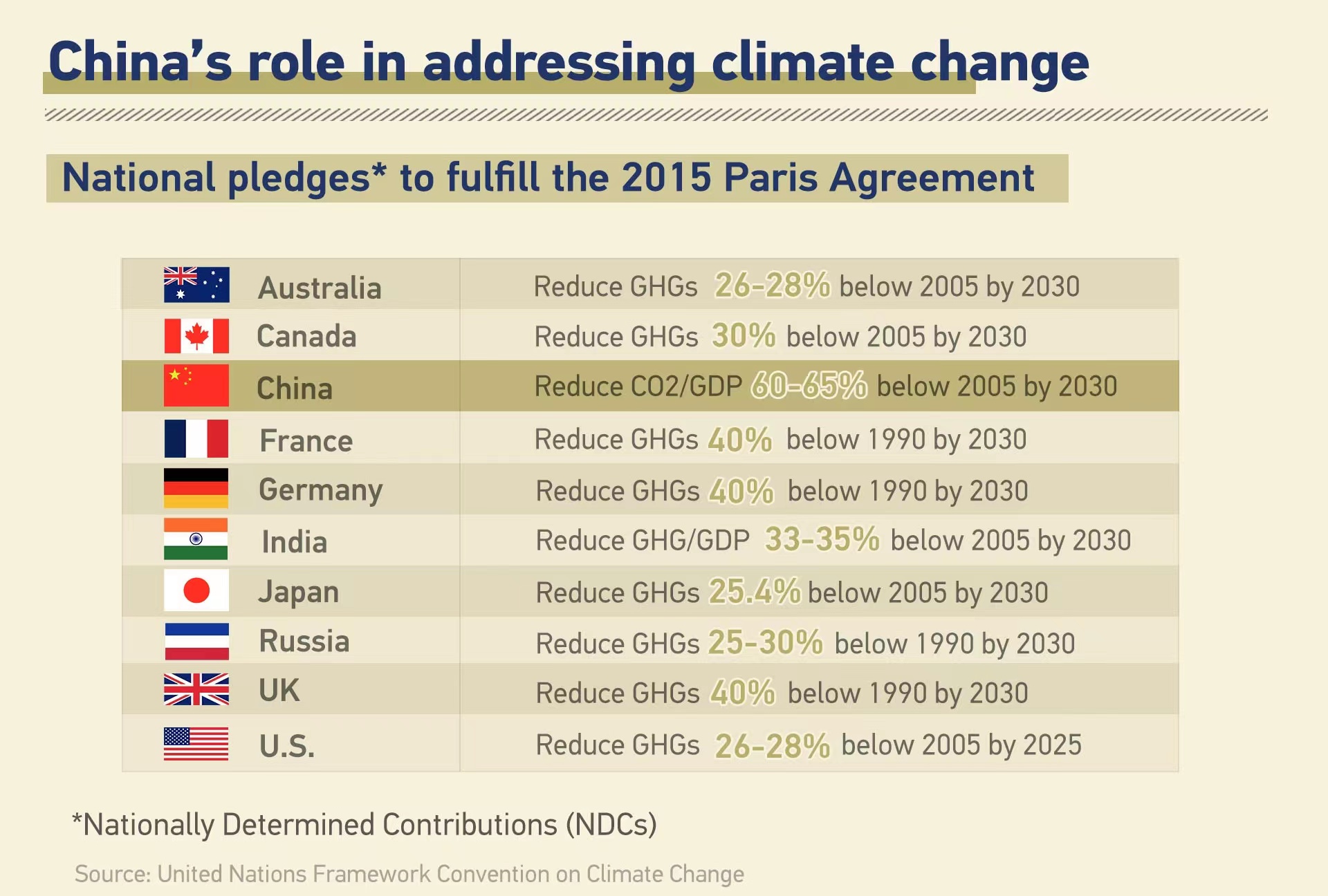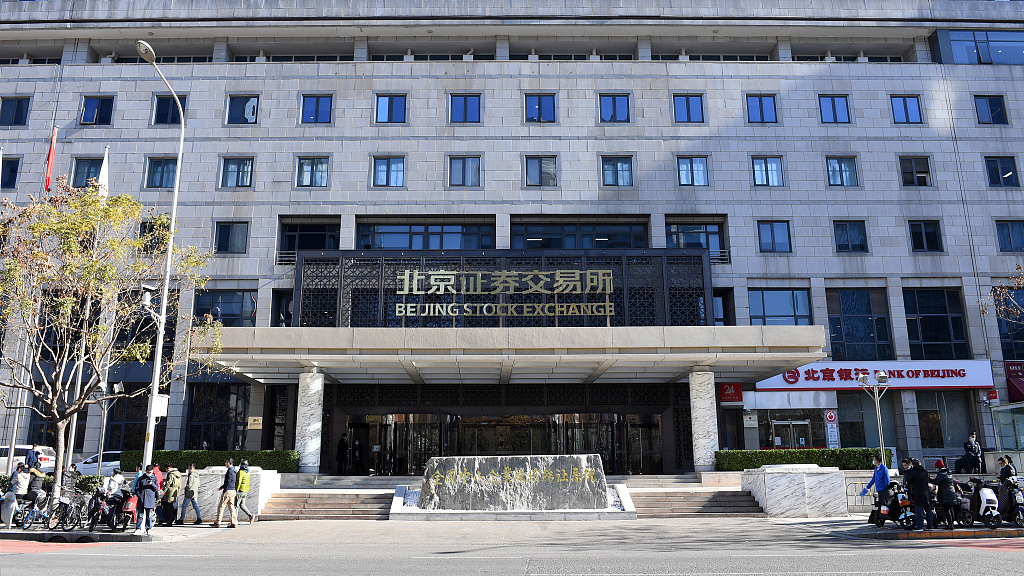
China Media Group, the country's state broadcaster, on Friday revealed its list of the top 10 domestic business stories of 2021.
1. China realizes the first centenary goal, achieves a 'Xiaokang' society, unveils 14th Five-Year Plan
China has realized the first centenary goal of building a moderately prosperous society in all respects in this year, as the Communist Party of China (CPC) celebrated its 100th anniversary of founding. The country is striding toward the second centenary goal of building China into a great modern socialist country in all respects.
A moderately prosperous society is also known as "Xiaokang society" in Chinese.
Also, China has unveiled its national development blueprint for the next five years as the country's 14th Five-Year Plan (2021-2025), which lists targets on improving the quality of economic growth, pursuing innovation-driven development, creating a robust domestic market, and promoting green development.
Read more:
What does China's realization of Xiaokang mean for its people and the world?
02:53

2. Record high grain output
China's grain output grew by 2 percent to a record high of 682.85 million tonnes this year, exceeding 650 million tonnes for seven consecutive years, data released by the National Bureau of Statistics (NBS) shows.
Officials said supply in the domestic grain market is fully guaranteed, and the structure of grain reserves have been further optimized.
"With several bumper harvests, the country's growing wheat stocks are sufficient to meet consumer demand for a year and a half," Qin Yuyun, an official with National Food and Strategic Reserves Administration said in November.
Read more:
How do these 'granaries' feed China's 1.4 billion people?
3. Over 2.7 billion doses of COVID-19 vaccines administered in China
As a country sticking to "dynamic zero-COVID" policy, an overall guideline for COVID-19 prevention and control, China pays high attention to vaccine production and universal vaccination. More than 2.7 billion doses of COVID-19 vaccines have been administered across China as of December 21, according to the National Health Commission.
The country's annual COVID-19 vaccine production capacity has reached seven billion doses, the Ministry of Industry and Information Technology said on Tuesday.
The country is also expediting the R&D of COVID-19 vaccines against the Omicron variant. Chinese scientists reacted quickly to the emergence of the Omicron variant, and were able to come up with strategies in two to three weeks to combat the new variant, said Zhang Wenhong, a Shanghai-based infectious disease specialist.
Read more:
Why does China stick to 'dynamic zero-COVID' policy?

A China-Europe Railway Express train departs from Xi'an, capital of northwest China's Shaanxi Province, to Kazakhstan's Almaty, August 11, 2021. /CFP
A China-Europe Railway Express train departs from Xi'an, capital of northwest China's Shaanxi Province, to Kazakhstan's Almaty, August 11, 2021. /CFP
4. China's foreign trade maintains high-speed growth
China's foreign trade continued its high-speed growth this year, despite complex global environment. Latest customs data for November shows that imports significantly beat market expectations with a year-on-year jump of 31.7 percent in dollar terms and exports rose by 22 percent.
The country's import and export growth for the first 11 months were all above 15 percent year-on-year, according to China's General Administration of Customs.
The country has continued to introduce measures facilitating trade, more proactive policies and lower market access thresholds.
Read more:
China to strengthen policy support for foreign trade amid headwinds
5. Zhejiang to be a demonstration zone for common prosperity
China in June announced a plan to build its eastern Zhejiang Province as a demonstration zone for common prosperity.
According to a guideline released by the Communist Party of China Central Committee and the State Council, Zhejiang should see its per capita gross domestic product reach the level of moderately developed economies by 2025.
The concept of common prosperity is introduced at Central Economic Work Conference, aiming to creating and accumulating social wealth, as well as preventing polarization.
Read more:
How will China achieve common prosperity? – Make 'cake' bigger first
6. Carbon peak, neutrality
China has adopted a variety of policies, measures and actions in order to meet its targets in response to climate change. In July, China launched the National Carbon Emissions Trading Market, aiming to realize the optimal allocation of resources and guide emission control companies in their low-carbon transformation through price signals formed by the market.
In October, China released a guideline to implement the carbon peak and neutrality under the new development philosophy.
The guideline, jointly issued by the Central Committee of the Communist Party of China and the State Council, introduced the roadmap for achieving peak carbon by 2030 and neutrality by 2060 – goals China first announced in September last year.
It also released a white paper on the country's policies and measures for responding to climate change in October.
Read more:
China releases white paper on climate change response

7. Pricing for electricity generated from coal liberalized
China fully liberalized pricing for electricity generated from coal in mid-October in an effort to ensure sufficient power supplies amid large-scale power shortages.
The National Development and Reform Commission said all electricity generated from coal-fired power will be priced through market transactions, and all industrial and commercial users should buy electricity at market prices.
The economic planner said the surging global energy prices had severe impact on the power and coal supply in China, and that further deepening the market-based reform of the industry would help to stabilize the power supply.
Read more:
China vows to bring coal prices down to address energy crunch
What's behind China's regional power cuts?

8. China's space station welcomes taikonauts; Tianwen-1 lands on Mars
China's unfinished space station welcomed two batches of taikonauts for a months-long stay.
The Shenzhou-12 crew, including three taikonauts, entered the space station's core module Tianhe in mid-June and lived there for three months till mid-September. The Shenzhou-13 crew, including a female taikonaut and her two male colleagues, arrived at Tianhe in mid-October and will stay there for six months.
Also, the rover of China's first Mars probe Tianwen-1 touched down on the red planet on May 15. It landed at a pre-selected landing zone in the southern part of an icy area of the planet known as Utopia Planitia.
Read more:
Here's a visual journey of China's first Mars mission.
How has China's space station prepared for its first female astronaut?

The building of Beijing Stock Exchange, November 23, 2021. /CFP
The building of Beijing Stock Exchange, November 23, 2021. /CFP
9. Beijing Stock Exchange launched
The Beijing Stock Exchange was launched on November 15 and witnessed a turnover of 9.57 billion yuan ($1.5 billion) on the first trading day.
In October, the China Securities Regulatory Commission published regulatory documents on the issuance, listing, refinancing, and supervision of the bourse, a month after the country's announcement of setting up a new stock exchange.
The new bourse is in addition to the two main boards in Shanghai and Shenzhen, and aims to be a major base for innovative small and medium-sized enterprises.
Read more:
Beijing stock exchange is set to offer huge financial support for innovative SMEs
Why does China need Beijing Stock Exchange?
10. Anti-monopoly campaign
Since the 18th National Congress of the Communist Party of China, the country has stepped up efforts for anti-monopoly regulation to build a unified and open market system with orderly competition. This year, the country vowed to strengthen anti-monopoly efforts and prevent the disorderly expansion of capital, so more efforts were made in this regard.
China issued antitrust guidelines on platform economy in February, signaling stricter antitrust enforcement against monopolistic behaviors in the country's internet platform sector.
The country inaugurated its new National Anti-monopoly Bureau in November in the same building as the State Administration for Market Regulation (SAMR) in Beijing.
In 2018, anti-monopoly supervision was integrated into the country's top market watchdog SAMR, which has imposed administrative penalties on many companies, including internet giants Alibaba, Tencent and Meituan for violating anti-monopoly laws.
Read more:
Antitrust move over Big Tech deemed a necessary part of 'common prosperity' plan

